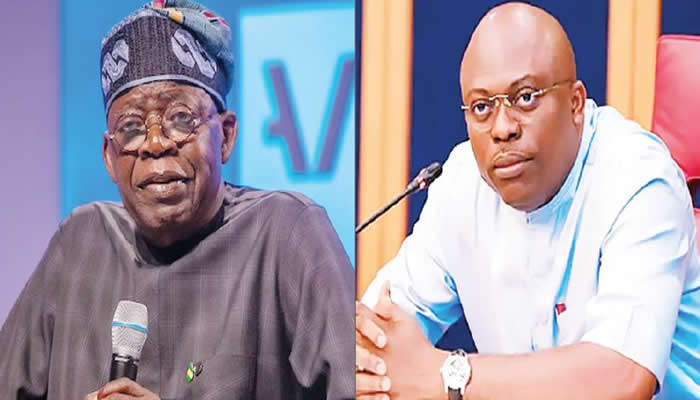The political landscape of Rivers State experienced a period of intense turmoil, culminating in the suspension of Governor Siminalayi Fubara and other elected officials. This crisis, stemming from a power struggle with his predecessor, Nyesom Wike, threatened to destabilize the state and plunge it into anarchy. However, the timely intervention of President Bola Tinubu, who declared a state of emergency and appointed an administrator, averted further escalation. Governor Fubara, while suspended, publicly commended President Tinubu’s decisive action, acknowledging that the president’s wisdom and swift response prevented a potentially disastrous outcome. Fubara expressed gratitude for the intervention, recognizing the pivotal role it played in stabilizing the state and setting the stage for a peaceful resolution.
The suspension of Governor Fubara, his deputy, and the entire Rivers State House of Assembly marked a dramatic turn in the state’s political trajectory. President Tinubu’s declaration of a state of emergency underscored the severity of the situation, emphasizing the need to restore law and order. The appointment of retired Vice Admiral Ibokette Ibas as state administrator aimed to provide neutral leadership during the period of emergency rule. This decisive action effectively halted the escalating tensions between Fubara and Wike, preventing the crisis from spiraling into widespread violence or political instability.
In the wake of the president’s intervention, Governor Fubara, although suspended, actively engaged in promoting reconciliation and peace within the state. He urged his supporters and the people of Rivers State to embrace the ongoing peace process, emphasizing the importance of unity and progress over individual political ambitions. Fubara’s call for forgiveness and reconciliation signaled a shift towards de-escalation and a commitment to resolving the political impasse. He acknowledged the grievances of those affected by the crisis but stressed the need to move forward collectively for the betterment of the state.
Fubara’s public expression of gratitude towards President Tinubu highlighted the significance of the intervention in preventing further deterioration of the situation. He acknowledged the president’s astute understanding of the crisis and the wisdom displayed in taking decisive action. Fubara also extended his thanks to individuals across the country who advocated for presidential intervention, recognizing the collective effort to restore stability in Rivers State. His emphasis on the importance of subjecting personal interests to the greater good of the state underscored a commitment to resolving the crisis through dialogue and compromise.
Beyond expressing gratitude for the intervention, Fubara also offered assurances about the future of governance in Rivers State. He expressed confidence in the eventual restoration of democratic processes and the resumption of normal legislative and executive functions. He envisioned a future where both branches of government would work collaboratively for the benefit of the people, highlighting the importance of a unified approach to governance. Fubara’s emphasis on forgiveness and reconciliation underscored his commitment to healing the divisions created by the political crisis and fostering a spirit of cooperation moving forward.
Fubara’s commitment to reconciliation extended specifically to his predecessor, Nyesom Wike. He publicly stated his intention to reconcile with Wike, emphasizing the importance of their relationship and the need to move past their differences. Fubara’s acknowledgment of Wike as his “Oga,” a term of respect, further demonstrated his desire to mend their relationship and work together for the benefit of Rivers State. This commitment to personal reconciliation reflected a broader strategy to heal the political rifts within the state and create a more stable and unified political environment. He expressed confidence in the ongoing peace process and anticipated a positive outcome that would allow the state to return to normalcy and focus on development initiatives.


